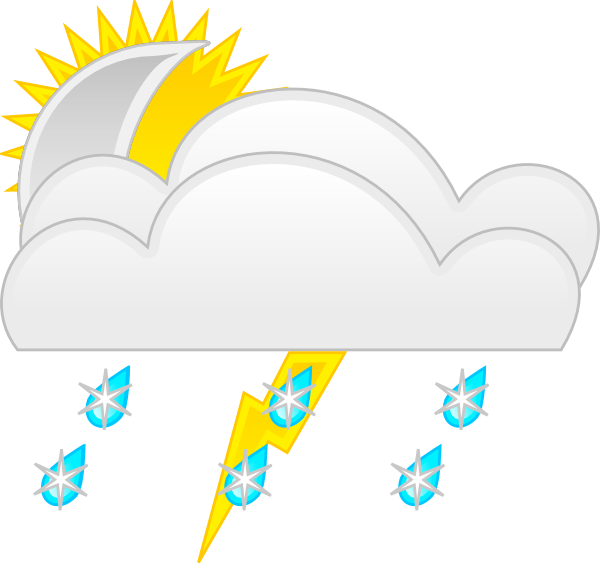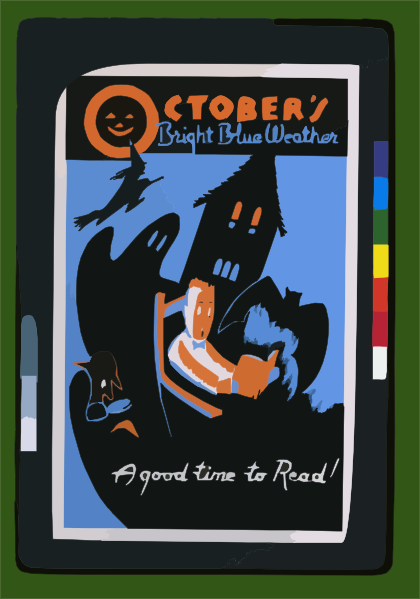
gcisadawg
01-20 08:07 PM
Our attorney's sent an email following this procedure. Hoping for the best!
wallpaper Weather Symbol clip art

Legal
01-15 09:45 AM
Join IV.

Blog Feeds
06-05 01:10 PM
It's Groundhog Day in Las Vegas, as immigration attorneys convene for the first day of the annual conference of the American Immigration Lawyers Association -- for many of us, regrettably, a victory of hope over experience. This is not intended as a smackdown of AILA. On the contrary, AILA has assembled an all star cast of speakers and is offering a collection of cutting-edge immigration topics. Rather, the reference to the film is more a commentary on the annual uttering of unhelpful, straight-faced responses by most (but not all) of the agency officials on the dais to the pressing concerns...
More... (http://blogs.ilw.com/angelopaparelli/2009/06/immigraton-gaming-in-las-vegas-day-1-of-the-aila-annual-conference.html)
More... (http://blogs.ilw.com/angelopaparelli/2009/06/immigraton-gaming-in-las-vegas-day-1-of-the-aila-annual-conference.html)
2011 Frog Clip Art

frostrated
09-01 03:41 PM
Is it having any advantage towards applying I-485 if getting married in US (H1B and other is on F1).
Has no advantage where you get married.
Has no advantage where you get married.
more...

Macaca
10-01 08:04 AM
Taxes, Health Lead Hill Agenda (http://www.washingtonpost.com/wp-dyn/content/article/2007/09/30/AR2007093001617.html?hpid=topnews) After Iraq Fight, Both Parties Welcome Shift By Jonathan Weisman | Washington Post Staff Writer, October 1, 2007
Out of a political stalemate over Iraq, domestic policy is surging to prominence on Capitol Hill, with Republicans and Democrats preparing for a time-honored clash over health care, tax policy, the scope of government and its role in America's problems at home.
The brewing veto fight this week over an expanded children's health insurance program is only the most visible sign of the new emphasis on domestic issues. Democratic White House hopefuls are resurrecting a push for universal health care while talking up tax policy, poverty and criminal justice. Democratic congressional leaders are revisiting Clinton-era battles over hate crimes and federal funding for local police forces.
The White House, at the urging of congressional Republican leaders, is spoiling for a fight on Democratic spending. And GOP leaders are looking for any opportunity for confrontations on illegal immigration and taxation.
At the heart of it all is a central question: Thirteen years after the 1994 Republican Revolution, has the country turned to the left in search of government solutions to intractable domestic problems?
Democrats think that the answer is yes. "As conditions deteriorate, Americans are asking, 'Who can make it better? Where can we look for help?' And not surprisingly, government is increasingly the answer," said Peter Hart, a Democratic pollster.
Even Republicans see a growing unease as the driving force in the domestic policy resurgence.
"There's no question the economy is good, but it's not a good for everybody," said House Minority Leader John A. Boehner (R-Ohio.). "When you look at family incomes, there hasn't been much rise. But there has been increased health-care costs, increased energy costs. They're nibbling up more than the family budget. It just drives more concerns."
For both parties, domestic policy fights are a welcome break after three election cycles dominated by terrorism and war. Republican and Democratic political leaders say they cannot shy away from the Iraq war. But for much of the year, the fight over the war has only shown Democrats to be ineffectual and Republicans to be intransigent.
For Democrats, a break in that fight could allow them to focus on issues that voters say demand attention. Last year's election victories by Democratic Sens. James Webb in Virginia and Jon Tester in Montana, and by Democratic governors in Arkansas, Colorado, Iowa and Ohio, show that a populist message can prevail even in swing states.
For Republicans, changing the subject is simply a relief.
"I think it is territory that tends to unite us more," said Senate Minority Whip Trent Lott (R-Miss.). "Republicans tend to squabble, but when it's fiscal issues, when it's economic issues, we tend to come together. That's what makes us Republicans."
If so, the GOP may be having an identity crisis. Boehner, Senate Minority Leader Mitch McConnell (R-Ky.) and President Bush have met regularly on what Boehner calls his "rebranding" initiative: winning back for the GOP the mantle of fiscal discipline and limited government.
But in the first big domestic battle on Capitol Hill, 18 Republicans in the Senate and 45 in the House abandoned their leaders to side with the Democrats on a five-year, $35 billion expansion of the State Children's Health Insurance Program.
House Republicans are expected to muster enough votes to sustain Bush's anticipated veto of the SCHIP bill, but Boehner conceded that Congress is liable to override the promised veto on a $21 billion water-project bill so crammed with home-district projects that it has been denounced by taxpayer and environmental groups alike.
"There's deadlock on Iraq. Bush is intransigent. It's clear we're not going to get the 60 votes to change course on the war. But Republicans are hurting too, so they're breaking with him on all these domestic issues," said Sen. Charles E. Schumer (N.Y.), chairman of the Democratic Senatorial Campaign Committee.
Indeed, on the domestic front Republicans may be in the same bind that they face on foreign policy: Their conservative base is not where the rest of the country is.
For more than a decade, the Democratic polling firm Hart Research and the Republican firm Public Opinion Strategies have read two propositions to Americans: "Government should do more to solve problems and help meet the needs of people" and "Government is doing too many things better left to businesses and individuals."
In December 1995, at the height of the Republican Revolution, a less-intrusive government won out, 62 percent to 32 percent. This month, a more activist government won out, 55 percent to 38 percent. Independent voters sided with government activism, 52 percent to 39 percent.
But Republican voters, by a margin of 62 to 32 percent, still say government is doing too much.
"The big tectonic plates of American politics are shifting, and the old Republican policies of limited government aren't working like they used to," Schumer said. "Their problem is, the Republican primary vote is still the old George Bush coalition -- strong foreign policy, cut taxes, cut government, family values. But Americans aren't there anymore."
But the same poll did find some hope for the GOP, said Neil Newhouse, a partner at Public Opinion Strategies. Americans said they do not see a role for the federal government in the current mortgage crisis.
"Americans seem to be saying that the problems the country is facing demand a more activist government, but that this does not extend to all issues or every problem," Newhouse said.
That's a difficult needle to thread, but it can be done, said former senator Jim Talent (R-Mo.), a top domestic policy adviser to Republican White House hopeful Mitt Romney. Then-Texas Gov. George W. Bush showed in 2000, with his stand on education and his general slogan of "compassionate conservatism," that Republicans can win on traditional Democratic turf. They can do that again, especially on health care, Talent said.
"Part of what is at the core of the party is smaller government, fiscal restraint," said Sen. Mel Martinez (Fla.), general chairman of the Republican National Committee. "But like in this debate on SCHIP, it's very important that we as Republicans make it clear we are for insuring children."
"It's no longer permissible for us to think 47 million Americans being uninsured is okay," Martinez said.
Out of a political stalemate over Iraq, domestic policy is surging to prominence on Capitol Hill, with Republicans and Democrats preparing for a time-honored clash over health care, tax policy, the scope of government and its role in America's problems at home.
The brewing veto fight this week over an expanded children's health insurance program is only the most visible sign of the new emphasis on domestic issues. Democratic White House hopefuls are resurrecting a push for universal health care while talking up tax policy, poverty and criminal justice. Democratic congressional leaders are revisiting Clinton-era battles over hate crimes and federal funding for local police forces.
The White House, at the urging of congressional Republican leaders, is spoiling for a fight on Democratic spending. And GOP leaders are looking for any opportunity for confrontations on illegal immigration and taxation.
At the heart of it all is a central question: Thirteen years after the 1994 Republican Revolution, has the country turned to the left in search of government solutions to intractable domestic problems?
Democrats think that the answer is yes. "As conditions deteriorate, Americans are asking, 'Who can make it better? Where can we look for help?' And not surprisingly, government is increasingly the answer," said Peter Hart, a Democratic pollster.
Even Republicans see a growing unease as the driving force in the domestic policy resurgence.
"There's no question the economy is good, but it's not a good for everybody," said House Minority Leader John A. Boehner (R-Ohio.). "When you look at family incomes, there hasn't been much rise. But there has been increased health-care costs, increased energy costs. They're nibbling up more than the family budget. It just drives more concerns."
For both parties, domestic policy fights are a welcome break after three election cycles dominated by terrorism and war. Republican and Democratic political leaders say they cannot shy away from the Iraq war. But for much of the year, the fight over the war has only shown Democrats to be ineffectual and Republicans to be intransigent.
For Democrats, a break in that fight could allow them to focus on issues that voters say demand attention. Last year's election victories by Democratic Sens. James Webb in Virginia and Jon Tester in Montana, and by Democratic governors in Arkansas, Colorado, Iowa and Ohio, show that a populist message can prevail even in swing states.
For Republicans, changing the subject is simply a relief.
"I think it is territory that tends to unite us more," said Senate Minority Whip Trent Lott (R-Miss.). "Republicans tend to squabble, but when it's fiscal issues, when it's economic issues, we tend to come together. That's what makes us Republicans."
If so, the GOP may be having an identity crisis. Boehner, Senate Minority Leader Mitch McConnell (R-Ky.) and President Bush have met regularly on what Boehner calls his "rebranding" initiative: winning back for the GOP the mantle of fiscal discipline and limited government.
But in the first big domestic battle on Capitol Hill, 18 Republicans in the Senate and 45 in the House abandoned their leaders to side with the Democrats on a five-year, $35 billion expansion of the State Children's Health Insurance Program.
House Republicans are expected to muster enough votes to sustain Bush's anticipated veto of the SCHIP bill, but Boehner conceded that Congress is liable to override the promised veto on a $21 billion water-project bill so crammed with home-district projects that it has been denounced by taxpayer and environmental groups alike.
"There's deadlock on Iraq. Bush is intransigent. It's clear we're not going to get the 60 votes to change course on the war. But Republicans are hurting too, so they're breaking with him on all these domestic issues," said Sen. Charles E. Schumer (N.Y.), chairman of the Democratic Senatorial Campaign Committee.
Indeed, on the domestic front Republicans may be in the same bind that they face on foreign policy: Their conservative base is not where the rest of the country is.
For more than a decade, the Democratic polling firm Hart Research and the Republican firm Public Opinion Strategies have read two propositions to Americans: "Government should do more to solve problems and help meet the needs of people" and "Government is doing too many things better left to businesses and individuals."
In December 1995, at the height of the Republican Revolution, a less-intrusive government won out, 62 percent to 32 percent. This month, a more activist government won out, 55 percent to 38 percent. Independent voters sided with government activism, 52 percent to 39 percent.
But Republican voters, by a margin of 62 to 32 percent, still say government is doing too much.
"The big tectonic plates of American politics are shifting, and the old Republican policies of limited government aren't working like they used to," Schumer said. "Their problem is, the Republican primary vote is still the old George Bush coalition -- strong foreign policy, cut taxes, cut government, family values. But Americans aren't there anymore."
But the same poll did find some hope for the GOP, said Neil Newhouse, a partner at Public Opinion Strategies. Americans said they do not see a role for the federal government in the current mortgage crisis.
"Americans seem to be saying that the problems the country is facing demand a more activist government, but that this does not extend to all issues or every problem," Newhouse said.
That's a difficult needle to thread, but it can be done, said former senator Jim Talent (R-Mo.), a top domestic policy adviser to Republican White House hopeful Mitt Romney. Then-Texas Gov. George W. Bush showed in 2000, with his stand on education and his general slogan of "compassionate conservatism," that Republicans can win on traditional Democratic turf. They can do that again, especially on health care, Talent said.
"Part of what is at the core of the party is smaller government, fiscal restraint," said Sen. Mel Martinez (Fla.), general chairman of the Republican National Committee. "But like in this debate on SCHIP, it's very important that we as Republicans make it clear we are for insuring children."
"It's no longer permissible for us to think 47 million Americans being uninsured is okay," Martinez said.

liberty
01-13 05:53 PM
I have not got any update from expert. Could you please take a look?
more...

bobbo0722
08-03 09:12 PM
http://www.peaseblog.com/pope_stamp.jpg
http://www.peaseblog.com/popo_stamp.jpg
http://www.peaseblog.com/kirupa_love.jpg
http://www.peaseblog.com/popo_stamp.jpg
http://www.peaseblog.com/kirupa_love.jpg
2010 Weather Symbols clip art

Blog Feeds
07-23 04:20 AM
The Governor has filed her response to the motion argued in court today to delay the implementation of Arizona's SB1070 law on July 24th. Reader USC has discussed some of the arguments in the comments. In short, Arizona is arguing that illegal immigration is costing the state serious money and delaying implementation will economically damage the state. Also, they argue that illegal immigrants are dangerous criminals and the citizens of Arizona are in grave danger each day this law is not implemented. Too bad the data doesn't back up either. On the crime issue, here are the facts. On the...
More... (http://blogs.ilw.com/gregsiskind/2010/07/arizona-files-brief-to-block-injunction.html)
More... (http://blogs.ilw.com/gregsiskind/2010/07/arizona-files-brief-to-block-injunction.html)
more...

Administrator2
10-16 07:35 PM
,
hair quot;turkey pictures clip artquot;

pappu
11-20 09:58 PM
There will be a conference call to kick off the Northern California chapter of IV tonight (Monday) at 8pm PST. Please email me at ojguinan@gmail.com for the details.
Thanks,
Thank you for this effort. Best wishes. Northern California members are requested to attend the call/get in touch with oguinan to help establish this chapter.
Thanks,
Thank you for this effort. Best wishes. Northern California members are requested to attend the call/get in touch with oguinan to help establish this chapter.
more...

shreya
02-16 09:17 PM
H1-H4-H1 conversion --Please advice
Posted Today at 10:14 PM by shreya
Hi,
I came US through H4.Currently on H1 since Oct 08. As Economy is bad,my employer couldnot place me in a project.So my employer is asking to convert from H1 to H4(by applying i-539) and once i get project can move back from H4 to H1, which will not come under seperate Quota as my H1 is already approved once.
Can i know is this safe to move from H1 to H4 and then back from H4 to H1 once i get project.Will there be any issues in converting H4 to H1.What are the chances of getting H1 back.
Please advice.Any suggestions is really appreciated.
Thanks
Shreya...
Posted Today at 10:14 PM by shreya
Hi,
I came US through H4.Currently on H1 since Oct 08. As Economy is bad,my employer couldnot place me in a project.So my employer is asking to convert from H1 to H4(by applying i-539) and once i get project can move back from H4 to H1, which will not come under seperate Quota as my H1 is already approved once.
Can i know is this safe to move from H1 to H4 and then back from H4 to H1 once i get project.Will there be any issues in converting H4 to H1.What are the chances of getting H1 back.
Please advice.Any suggestions is really appreciated.
Thanks
Shreya...
hot Children Using an Abacus to

Aah_GC
07-09 01:01 PM
Hi Pappu and rest of IV admins,
I have been an active donor but had to temporarily cancel my subscription due to pay pal problems. I am back donating again and cannot access the donor forums. Could you please help me with this issue? I tried writing on the 'Contact us' form, but havent had any luck so far.
I have been an active donor but had to temporarily cancel my subscription due to pay pal problems. I am back donating again and cannot access the donor forums. Could you please help me with this issue? I tried writing on the 'Contact us' form, but havent had any luck so far.
more...
house turkey pictures clip art

Kale
03-15 04:16 AM
this link is not working ..Do you have another ?
tattoo Weather clip art

kirupa
09-13 05:30 PM
Some portions of the animation might have numerous edges that take a long time for your processor to process. You really cannot avoid that unless you have any background programs running.
more...
pictures pictures in clip artquot;.
pappu
11-20 09:58 PM
There will be a conference call to kick off the Northern California chapter of IV tonight (Monday) at 8pm PST. Please email me at ojguinan@gmail.com for the details.
Thanks,
Thank you for this effort. Best wishes. Northern California members are requested to attend the call/get in touch with oguinan to help establish this chapter.
Thanks,
Thank you for this effort. Best wishes. Northern California members are requested to attend the call/get in touch with oguinan to help establish this chapter.
dresses Tags:art, band, children, clip

Macaca
11-11 08:15 AM
Extreme Politics (http://www.nytimes.com/2007/11/11/books/review/Brinkley-t.html) By ALAN BRINKLEY | New York Times, November 11, 2007
Alan Brinkley is the Allan Nevins professor of history and the provost at Columbia University.
Few people would dispute that the politics of Washington are as polarized today as they have been in decades. The question Ronald Brownstein poses in this provocative book is whether what he calls “extreme partisanship” is simply a result of the tactics of recent party leaders, or whether it is an enduring product of a systemic change in the structure and behavior of the political world. Brownstein, formerly the chief political correspondent for The Los Angeles Times and now the political director of the Atlantic Media Company, gives considerable credence to both explanations. But the most important part of “The Second Civil War” — and the most debatable — is his claim that the current political climate is the logical, perhaps even inevitable, result of a structural change that stretched over a generation.
A half-century ago, Brownstein says, the two parties looked very different from how they appear today. The Democratic Party was a motley combination of the conservative white South; workers in the industrial North as well as African-Americans and other minorities; and cosmopolitan liberals in the major cities of the East and West Coasts. Republicans dominated the suburbs, the business world, the farm belt and traditional elites. But the constituencies of both parties were sufficiently diverse, both demographically and ideologically, to mute the differences between them. There were enough liberals in the Republican Party, and enough conservatives among the Democrats, to require continual negotiation and compromise and to permit either party to help shape policy and to be competitive in most elections. Brownstein calls this “the Age of Bargaining,” and while he concedes that this era helped prevent bold decisions (like confronting racial discrimination), he clearly prefers it to the fractious world that followed.
The turbulent politics of the 1960s and ’70s introduced newly ideological perspectives to the two major parties and inaugurated what Brownstein calls “the great sorting out” — a movement of politicians and voters into two ideological camps, one dominated by an intensified conservatism and the other by an aggressive liberalism. By the end of the 1970s, he argues, the Republican Party was no longer a broad coalition but a party dominated by its most conservative voices; the Democratic Party had become a more consistently liberal force, and had similarly banished many of its dissenting voices. Some scholars and critics of American politics in the 1950s had called for exactly such a change, insisting that clear ideological differences would give voters a real choice and thus a greater role in the democratic process. But to Brownstein, the “sorting out” was a catastrophe that led directly to the meanspirited, take-no-prisoners partisanship of today.
There is considerable truth in this story. But the transformation of American politics that he describes was the product of more extensive forces than he allows and has been, at least so far, less profound than he claims. Brownstein correctly cites the Democrats’ embrace of the civil rights movement as a catalyst for partisan change — moving the white South solidly into the Republican Party and shifting it farther to the right, while pushing the Democrats farther to the left. But he offers few other explanations for “the great sorting out” beyond the preferences and behavior of party leaders. A more persuasive explanation would have to include other large social changes: the enormous shift of population into the Sun Belt over the last several decades; the new immigration and the dramatic increase it created in ethnic minorities within the electorate; the escalation of economic inequality, beginning in the 1970s, which raised the expectations of the wealthy and the anxiety of lower-middle-class and working-class people (an anxiety conservatives used to gain support for lowering taxes and attacking government); the end of the cold war and the emergence of a much less stable international system; and perhaps most of all, the movement of much of the political center out of the party system altogether and into the largest single category of voters — independents. Voters may not have changed their ideology very much. Most evidence suggests that a majority of Americans remain relatively moderate and pragmatic. But many have lost interest, and confidence, in the political system and the government, leaving the most fervent party loyalists with greatly increased influence on the choice of candidates and policies.
Brownstein skillfully and convincingly recounts the process by which the conservative movement gained control of the Republican Party and its Congressional delegation. He is especially deft at identifying the institutional and procedural tools that the most conservative wing of the party used after 2000 both to vanquish Republican moderates and to limit the ability of the Democratic minority to participate meaningfully in the legislative process. He is less successful (and somewhat halfhearted) in making the case for a comparable ideological homogeneity among the Democrats, as becomes clear in the book’s opening passage. Brownstein appropriately cites the former House Republican leader Tom DeLay’s farewell speech in 2006 as a sign of his party’s recent strategy. DeLay ridiculed those who complained about “bitter, divisive partisan rancor.” Partisanship, he stated, “is not a symptom of democracy’s weakness but of its health and its strength.”
But making the same argument about a similar dogmatism and zealotry among Democrats is a considerable stretch. To make this case, Brownstein cites not an elected official (let alone a Congressional leader), but the readers of the Daily Kos, a popular left-wing/libertarian Web site that promotes what Brownstein calls “a scorched-earth opposition to the G.O.P.” According to him, “DeLay and the Democratic Internet activists ... each sought to reconfigure their political party to the same specifications — as a warrior party that would commit to opposing the other side with every conceivable means at its disposal.” The Kos is a significant force, and some leading Democrats have attended its yearly conventions. But few party leaders share the most extreme views of Kos supporters, and even fewer embrace their “passionate partisanship.” Many Democrats might wish that their party leaders would emulate the aggressively partisan style of the Republican right. But it would be hard to argue that they have come even remotely close to the ideological purity of their conservative counterparts. More often, they have seemed cowed and timorous in the face of Republican discipline, and have over time themselves moved increasingly rightward; their recapture of Congress has so far appeared to have emboldened them only modestly.
There is no definitive answer to the question of whether the current level of polarization is the inevitable result of long-term systemic changes, or whether it is a transitory product of a particular political moment. But much of this so-called age of extreme partisanship has looked very much like Brownstein’s “Age of Bargaining.” Ronald Reagan, the great hero of the right and a much more effective spokesman for its views than President Bush, certainly oversaw a significant shift in the ideology and policy of the Republican Party. But through much of his presidency, both he and the Congressional Republicans displayed considerable pragmatism, engaged in negotiation with their opponents and accepted many compromises. Bill Clinton, bedeviled though he was by partisan fury, was a master of compromise and negotiation — and of co-opting and transforming the views of his adversaries. Only under George W. Bush — through a combination of his control of both houses of Congress, his own inflexibility and the post-9/11 climate — did extreme partisanship manage to dominate the agenda. Given the apparent failure of this project, it seems unlikely that a new president, whether Democrat or Republican, will be able to recreate the dispiriting political world of the last seven years.
Division of the U.S. Didn’t Occur Overnight (http://www.nytimes.com/2007/11/13/books/13kaku.html) By MICHIKO KAKUTANI | New York Times, November 13, 2007
THE SECOND CIVIL WAR How Extreme Partisanship Has Paralyzed Washington and Polarized America By Ronald Brownstein, The Penguin Press. $27.95
Alan Brinkley is the Allan Nevins professor of history and the provost at Columbia University.
Few people would dispute that the politics of Washington are as polarized today as they have been in decades. The question Ronald Brownstein poses in this provocative book is whether what he calls “extreme partisanship” is simply a result of the tactics of recent party leaders, or whether it is an enduring product of a systemic change in the structure and behavior of the political world. Brownstein, formerly the chief political correspondent for The Los Angeles Times and now the political director of the Atlantic Media Company, gives considerable credence to both explanations. But the most important part of “The Second Civil War” — and the most debatable — is his claim that the current political climate is the logical, perhaps even inevitable, result of a structural change that stretched over a generation.
A half-century ago, Brownstein says, the two parties looked very different from how they appear today. The Democratic Party was a motley combination of the conservative white South; workers in the industrial North as well as African-Americans and other minorities; and cosmopolitan liberals in the major cities of the East and West Coasts. Republicans dominated the suburbs, the business world, the farm belt and traditional elites. But the constituencies of both parties were sufficiently diverse, both demographically and ideologically, to mute the differences between them. There were enough liberals in the Republican Party, and enough conservatives among the Democrats, to require continual negotiation and compromise and to permit either party to help shape policy and to be competitive in most elections. Brownstein calls this “the Age of Bargaining,” and while he concedes that this era helped prevent bold decisions (like confronting racial discrimination), he clearly prefers it to the fractious world that followed.
The turbulent politics of the 1960s and ’70s introduced newly ideological perspectives to the two major parties and inaugurated what Brownstein calls “the great sorting out” — a movement of politicians and voters into two ideological camps, one dominated by an intensified conservatism and the other by an aggressive liberalism. By the end of the 1970s, he argues, the Republican Party was no longer a broad coalition but a party dominated by its most conservative voices; the Democratic Party had become a more consistently liberal force, and had similarly banished many of its dissenting voices. Some scholars and critics of American politics in the 1950s had called for exactly such a change, insisting that clear ideological differences would give voters a real choice and thus a greater role in the democratic process. But to Brownstein, the “sorting out” was a catastrophe that led directly to the meanspirited, take-no-prisoners partisanship of today.
There is considerable truth in this story. But the transformation of American politics that he describes was the product of more extensive forces than he allows and has been, at least so far, less profound than he claims. Brownstein correctly cites the Democrats’ embrace of the civil rights movement as a catalyst for partisan change — moving the white South solidly into the Republican Party and shifting it farther to the right, while pushing the Democrats farther to the left. But he offers few other explanations for “the great sorting out” beyond the preferences and behavior of party leaders. A more persuasive explanation would have to include other large social changes: the enormous shift of population into the Sun Belt over the last several decades; the new immigration and the dramatic increase it created in ethnic minorities within the electorate; the escalation of economic inequality, beginning in the 1970s, which raised the expectations of the wealthy and the anxiety of lower-middle-class and working-class people (an anxiety conservatives used to gain support for lowering taxes and attacking government); the end of the cold war and the emergence of a much less stable international system; and perhaps most of all, the movement of much of the political center out of the party system altogether and into the largest single category of voters — independents. Voters may not have changed their ideology very much. Most evidence suggests that a majority of Americans remain relatively moderate and pragmatic. But many have lost interest, and confidence, in the political system and the government, leaving the most fervent party loyalists with greatly increased influence on the choice of candidates and policies.
Brownstein skillfully and convincingly recounts the process by which the conservative movement gained control of the Republican Party and its Congressional delegation. He is especially deft at identifying the institutional and procedural tools that the most conservative wing of the party used after 2000 both to vanquish Republican moderates and to limit the ability of the Democratic minority to participate meaningfully in the legislative process. He is less successful (and somewhat halfhearted) in making the case for a comparable ideological homogeneity among the Democrats, as becomes clear in the book’s opening passage. Brownstein appropriately cites the former House Republican leader Tom DeLay’s farewell speech in 2006 as a sign of his party’s recent strategy. DeLay ridiculed those who complained about “bitter, divisive partisan rancor.” Partisanship, he stated, “is not a symptom of democracy’s weakness but of its health and its strength.”
But making the same argument about a similar dogmatism and zealotry among Democrats is a considerable stretch. To make this case, Brownstein cites not an elected official (let alone a Congressional leader), but the readers of the Daily Kos, a popular left-wing/libertarian Web site that promotes what Brownstein calls “a scorched-earth opposition to the G.O.P.” According to him, “DeLay and the Democratic Internet activists ... each sought to reconfigure their political party to the same specifications — as a warrior party that would commit to opposing the other side with every conceivable means at its disposal.” The Kos is a significant force, and some leading Democrats have attended its yearly conventions. But few party leaders share the most extreme views of Kos supporters, and even fewer embrace their “passionate partisanship.” Many Democrats might wish that their party leaders would emulate the aggressively partisan style of the Republican right. But it would be hard to argue that they have come even remotely close to the ideological purity of their conservative counterparts. More often, they have seemed cowed and timorous in the face of Republican discipline, and have over time themselves moved increasingly rightward; their recapture of Congress has so far appeared to have emboldened them only modestly.
There is no definitive answer to the question of whether the current level of polarization is the inevitable result of long-term systemic changes, or whether it is a transitory product of a particular political moment. But much of this so-called age of extreme partisanship has looked very much like Brownstein’s “Age of Bargaining.” Ronald Reagan, the great hero of the right and a much more effective spokesman for its views than President Bush, certainly oversaw a significant shift in the ideology and policy of the Republican Party. But through much of his presidency, both he and the Congressional Republicans displayed considerable pragmatism, engaged in negotiation with their opponents and accepted many compromises. Bill Clinton, bedeviled though he was by partisan fury, was a master of compromise and negotiation — and of co-opting and transforming the views of his adversaries. Only under George W. Bush — through a combination of his control of both houses of Congress, his own inflexibility and the post-9/11 climate — did extreme partisanship manage to dominate the agenda. Given the apparent failure of this project, it seems unlikely that a new president, whether Democrat or Republican, will be able to recreate the dispiriting political world of the last seven years.
Division of the U.S. Didn’t Occur Overnight (http://www.nytimes.com/2007/11/13/books/13kaku.html) By MICHIKO KAKUTANI | New York Times, November 13, 2007
THE SECOND CIVIL WAR How Extreme Partisanship Has Paralyzed Washington and Polarized America By Ronald Brownstein, The Penguin Press. $27.95
more...
makeup October S Bright Blue Weather

ras
01-11 07:06 PM
Here you see some of the early adopters of AC21 rule asking similar questions during 2002-2003.
http://www.immigrationportal.com/archive/index.php/f-121.html
That is a good one
http://www.immigrationportal.com/archive/index.php/f-121.html
That is a good one
girlfriend Clip Art Christmas

invincibleasian
02-19 05:22 PM
You are better off applying visa in a home country. Usually the have better access to verify records!
hairstyles http://clip-art-free-clipart.

chrisclick
08-23 08:41 AM
Its ok... Eyes look abit freaky.
Not actually a stamp I'd put on a letter to my grandmother
True
Not actually a stamp I'd put on a letter to my grandmother
True
myimmiv
12-17 02:10 PM
My wife will be coming back in April 2nd week through Denver. CO POE. Her AP is valid until June 3rd week.
My question is that is 2 months of AP validity / cushion enough or safe to enter the US.
Will she get a 1 year I-94 validity from the date of entry or only until her AP expires?
This question has also been posted in the member forum and I have posted it here to get advice from the eminent lawyers from a legal standpoint.
Thanks in advance for all your time.
My question is that is 2 months of AP validity / cushion enough or safe to enter the US.
Will she get a 1 year I-94 validity from the date of entry or only until her AP expires?
This question has also been posted in the member forum and I have posted it here to get advice from the eminent lawyers from a legal standpoint.
Thanks in advance for all your time.
imneedy
10-17 11:35 AM
Does your EAD state that you can use it for returning to US?
No comments:
Post a Comment